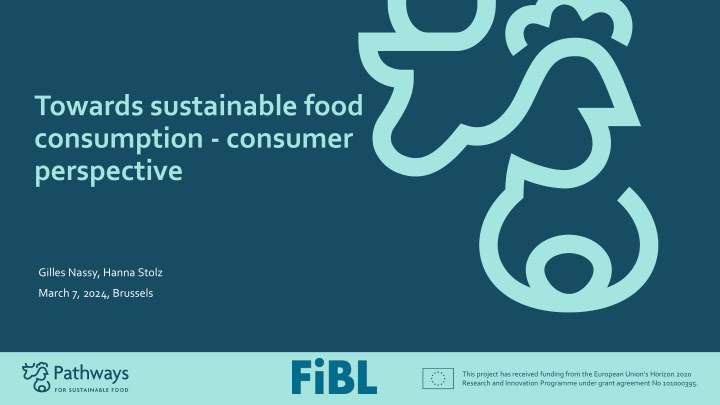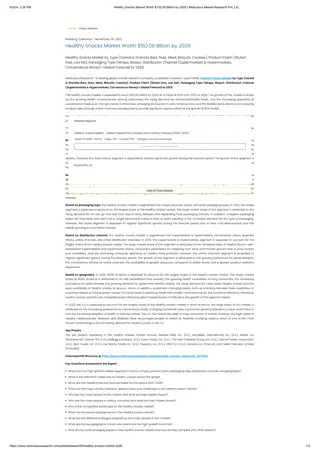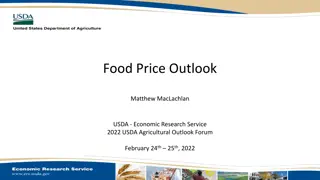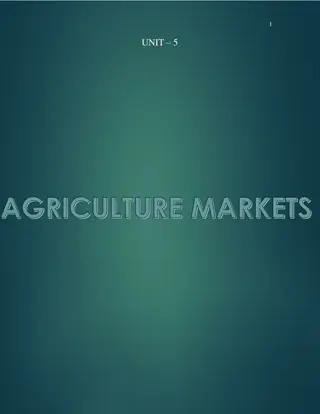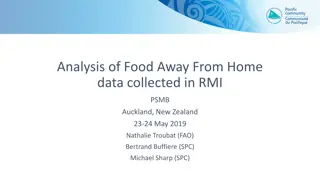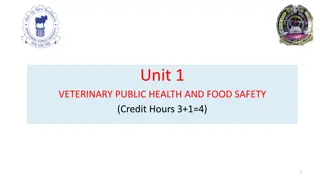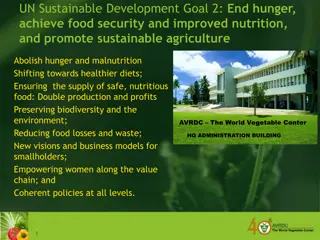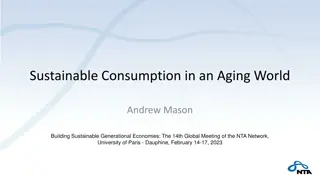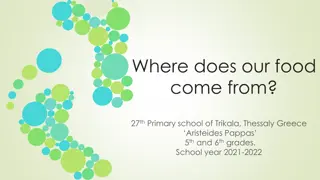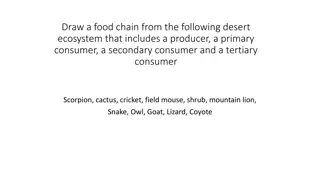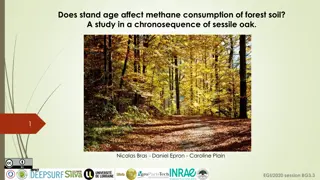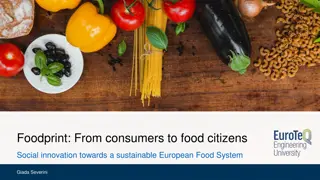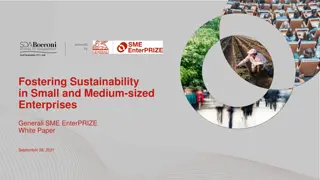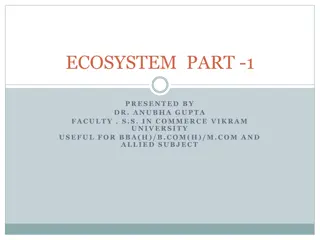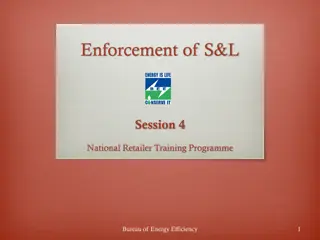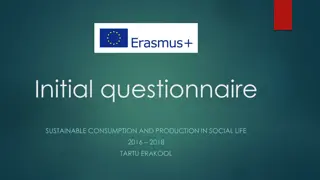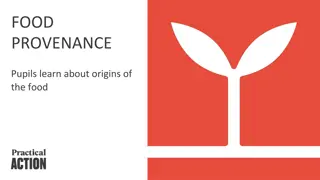Insights on Sustainable Food Consumption from European Consumers
Research funded by the EU's Horizon 2020 program delves into consumer motivations, perceived responsibilities of different actors in the food system, and acceptance of interventions promoting sustainable food consumption. The study, conducted through online surveys in five European countries, provides valuable data on consumer attitudes towards environmental, climate, and animal welfare considerations in food choices.
Download Presentation

Please find below an Image/Link to download the presentation.
The content on the website is provided AS IS for your information and personal use only. It may not be sold, licensed, or shared on other websites without obtaining consent from the author.If you encounter any issues during the download, it is possible that the publisher has removed the file from their server.
You are allowed to download the files provided on this website for personal or commercial use, subject to the condition that they are used lawfully. All files are the property of their respective owners.
The content on the website is provided AS IS for your information and personal use only. It may not be sold, licensed, or shared on other websites without obtaining consent from the author.
E N D
Presentation Transcript
Towards sustainable food consumption - consumer perspective Gilles Nassy, Hanna Stolz March 7, 2024, Brussels This project has received funding from the European Union s Horizon 2020 Research and Innovation Programme under grant agreement No 101000395.
Methods and sample n= 495 Online survey in Germany, France, Italy, Romania and Sweden, representing the different regions in Europe Quota sampling for age, gender and region based on NUTS 1 regions to achieve a high representativeness n = around 500 respondents per country Data collection: Nov 23-Feb 24, marketing agency Bilendi n=529 n=510 n=488 n=538 2
Level of motivation to consume sustainably 4.0 3.5 2.8 2.7 2.7 3.0 2.7 2.7 2.7 2.6 2.6 2.6 2.5 2.5 2.4 2.3 2.3 2.5 1.7 2.0 1.5 1.0 Environmental friendly Climate friendly Animal friendly DE FR IT RO SV Question: Please indicate your level of motivation for sustainable food consumption (regarding environment, climate and farm animal welfare); 5-point scale from 1= I am not motivated at all to 4 = I am doing so already); n total = 2551
Perceived responsibility of different actors 5.0 4.5 4.1 4.0 3.9 3.9 3.9 3.9 3.9 3.8 3.8 3.8 3.8 3.8 4.0 3.6 3.5 3.5 3.5 3.4 3.4 3.3 3.3 3.5 3.0 2.5 2.0 1.5 1.0 Consumers Retailers/distributors/shop owners Farmers Policy makers DE FR IT RO SV Question: When it comes to sustainability (regarding environment, climate and animal welfare) improvements in food systems, who in particular should, according to your opinion, take responsibility? 5-point-scale of 1 = very low level of responsibility to 5 = very high level of responsibility; n total = 2551
Acceptances of interventions to promote sustainable food consumption 5.0 4.5 4.0 4.0 3.9 3.9 3.9 3.8 3.8 3.8 3.8 3.8 3.8 3.8 3.7 3.7 3.7 3.7 3.7 3.6 3.6 3.6 4.0 3.6 3.6 3.6 3.4 3.3 3.3 3.3 3.2 3.1 3.5 3.0 3.0 2.5 2.0 1.5 1.0 Labels (e.g. traffic light) Instructions for sustainable food choices by authorities Labelling of benefits of sustainable foods Financial incentives (e.g. VAT reduction) Taxes/compensation for unsustainable products Binding agricultural sustainability regulations DE FR IT RO SV Question: How much are you in favour or against the single interventions to promote the sustainability in the food system. 5-point scale from 1 = I am completely against this intervention to 5 = I am completely in favour of this intervention; n total = 2551
Acceptances of future policies related animal based products 5.0 4.5 4.0 3.9 3.9 3.8 3.8 3.8 3.8 3.7 3.7 4.0 3.7 3.7 3.6 3.6 3.6 3.6 3.6 3.6 3.6 3.5 3.5 3.4 3.4 3.3 3.3 3.3 3.3 3.2 3.5 3.2 3.2 3.1 3.1 3.1 3.1 3.0 3.0 2.7 3.0 2.7 2.3 2.5 2.2 2.0 2.0 1.5 1.0 Maintain status quo More efficiently produced animal based products More lab-grown meat More protein- rich foods from plants and algae More locally produced animal based products Reduction of meat/animal product consumption More animal welfare in production More organic animal based products DE FR IT RO SV Question: How much are you in favour of or against the single policies related to meat/animal product consumption? 5-point scale from 1 = I am completely against this policy to 5 = I am completely in favour of this policy n=2551
